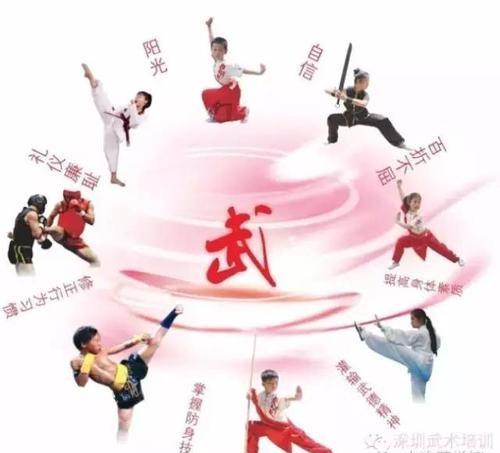Our traditional martial arts is the crystallization of a national culture, with distinct national cultural characteristics, which not only shows the unceasing spiritual outlook of the Chinese nation for thousands of years, but also draws the essence of Confucianism from its formation process. In the long-term development process, traditional martial arts have been influenced by traditional Chinese culture, customs and patriarchal thought, and have been nurtured, produced and derived in the overall atmosphere of national culture. In the course of thousands of years of history, as a social behavior and a form of expression of traditional culture, it has penetrated all aspects of national traditions and is rooted in the influence of traditional Confucian ethical thought and culture, making its connotation richer and the meaning more profound.

Confucian culture
The ethical essence of Confucian "righteousness" contains traditional martial virtues
The Confucian classics, such as the Analects and Mencius, never made extensive and profound inquiries into the morality of the word "righteousness." "Analects of Li Ren": "A gentleman is also in the world, there is no fit, there is no Mo, and righteousness is compared." And: "A gentleman is a righteous man, and a villain is a profit." The "righteousness" that is honored in the martial arts mainly refers to the "great righteousness" advocated by Confucianism, that is, for the motherland and the people. From ancient times to the present, defending the country and protecting the people and chivalry have always been the ideals of life pursued by the Wulin people.
From the perspective of traditional martial virtues, Confucianism believes in ethics
Xinyi is one of the "five constants" of Confucianism, which is intended to be honest, trustworthy, and not hypocritical. "Faith" is one of the important conditions for realizing "benevolence" in the Confucian ethical normative system, and it is also an important content of Confucian moral cultivation. "Man does not believe, does not know," Confucius said. He stressed that people should "believe with sincerity" and "make friends and believe in what they say." "Faith", like benevolence, righteousness, and etiquette, is an important moral code respected by the wulin people in the traditional martial arts normative system. As an important part of traditional martial arts, the basic spirit of "faith" is to teach martial practitioners to learn to be human. Insincerity, deeds must be fruitful, and promises must be sincere have always been the most fundamental views of the Wulin people on life and the basic principle of standing in the world.
Traditional martial arts in Confucianism embody the benevolence of Shang "Yong"
To be brave means to be brave, strong, and strong. Confucius said, "Courage is benevolence." The love and selflessness of good people, daring to declare war on all ugliness, is fearless. Bravery is a moral standard, but also a behavioral practice, there is a distinction between "great courage" and "small courage". The courage advocated in traditional martial arts is what Mencius called "great courage", that is, "the people of the world", who are established for the country, who win glory for the country, who win glory for the country, and who pursue lofty ideals, not the kind of small courage. All martial artists aim to be brave. Moving forward bravely and courageously is a precious quality of the Chinese nation and one of the magic weapons for overcoming difficulties and defeating the enemy. At the same time, the great righteousness of the martial artists also affected the common people, who drew spiritual strength and dared to fight against all evil forces.
This shows that in the practice and development of martial arts for thousands of years, traditional Chinese martial arts have played a good role in regulating the words and deeds of martial artists, and have even become a way of life for martial practitioners. Excavating the essence of Confucian culture in traditional Chinese martial arts and strengthening martial arts education are of great practical significance to improving the moral cultivation of martial practitioners, cultivating humanistic spirit, and building a harmonious society